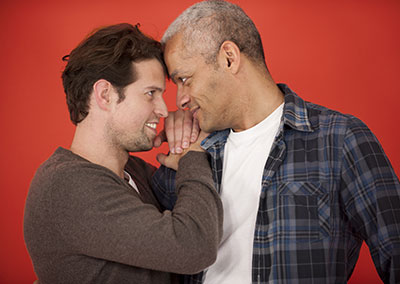SA & Ugandan scientists: Same-sex love is natural
 Sexual diversity has always been part of a normal society and there is no justification for attempts to eliminate people who are not heterosexual from society, say African scientists.
Sexual diversity has always been part of a normal society and there is no justification for attempts to eliminate people who are not heterosexual from society, say African scientists.
Efforts, they argue, should rather be focused on countering the stigmatisation that creates hostile and violent environments for those who are othered within heteronormative societies.
This is reiterated in a comprehensive report entitled Diversity in Human Sexuality: Implications for Policy in Africa released this week by the Academy of Science of South Africa (ASSAf) at a launch event coinciding with the 7th SA AIDS Conference in Durban.
Despite huge progress since 2000, thirty-eight of fifty-three African nations still criminalise homosexuality, thereby imposing legislative restrictions on sexual desires and practices, and on the fulfilment of the human rights of individuals. Stigmatisation and criminalisation of homosexuality have made public health interventions, particularly regarding HIV prevention and treatment, difficult to implement effectively.
This study, which was undertaken in collaboration with the Uganda National Academy of Sciences, examined evidence that would provide answers to a set of critical questions related to gender diversity and human sexuality.
Questions covered the roles of biology and the environment in determining gender diversity and human sexuality; whether sexual orientation could be altered through therapy; whether claims that same-sex orientations posed a threat to others were authentic; and what were the public health consequences of criminalising same-sex sexual orientations.
The report concludes that it is evident that contemporary science increasingly recognises the wide range of natural variation in human sexuality, sexual orientations and gender identities. It further suggests that governments have a duty to consider scientific perspectives and draw on the most current scientific knowledge when creating policy and enacting laws.
Significant and even path-breaking research in a variety of fields has been undertaken in the recent past into sexuality and sexual orientation, but much of this research is not widely known to policymakers yet, nor is much of it in the public domain.
The report concludes that there is substantial biological evidence for the diversity of human sexualities and for sexual orientations in particular. Studies have found significant linkage between male sexual orientation and regions of the X chromosome.
This particular region on the X chromosome is also associated with other elements of sexual development. These findings, initially published in 1993 and confirmed in 2014, directly associate a particular trait (same-sex orientation) to genetic material for at least some same-sex-attracted men.
While less well studied, there is also considerable evidence for a biological component for same-sex orientation in women.
Other conclusions of the report are:
- No evidence could be found to support the notion that sexual orientation can be acquired through contact with lesbian, gay, bisexual, transgender and intersex (LGBTI) persons.
- There is a lack of evidence to support the idea that the way parents bring up their children, or the relationships formed between children and parents, impacts on sexual orientation.
- There is no evidence that same-sex orientation can be changed through ‘conversion’ or ‘reparative’ therapy.
- There is no evidence linking LGB sexual orientation or transgender and intersex people with the ‘recruitment’ of young people through childhood sexual abuse.
- There is clear evidence that more repressive environments increase minority stress and impact negatively on LGBTI health.
The study was undertaken against the background that while two-thirds of countries in the world no longer outlaw LGBTI relationships, same-sex relationships are still illegal in 76 countries.
It is estimated that about 5% of the world population is not heterosexual in orientation. Based on 2015 global population estimates of 7.2 billion people, this would suggest that between 350 million and 400 million people are not heterosexual, with at least 50 million of these living in African countries.
Recently, new laws have been passed in Russia, India, Nigeria, Burundi, Cameroon and Uganda and are being contemplated in other countries to prohibit same-sex relationships or what is termed ‘promotion of homosexuality’.
There is evidence that these laws cause negative consequences not only for LGBTI persons and communities through an increase in the levels of harassment and repression, but also for societies as a whole.
These include the reversal of public health gains, such as in HIV and AIDS and other sexual health programmes, increases in levels of social violence, reduced economic growth, and the diversion of attention from sexual and other violence against women and children.
“Considering the intense debate and interest that the topic of same-sex sexual orientation and gender identities has elicited, this study will provide much needed clarity on key points on the subject,” wrote Professor Daya Reddy, ASSAf President, in the report’s foreword.
“It is hoped that this report will be widely disseminated on the continent and beyond, and that the findings and recommendations will inform policymakers,” he added.
The full report Diversity in Human Sexuality: Implications for Policy in Africa is available here.
Source: www.assaf.co.za
- Facebook Messenger
- Total114
Leave a Reply